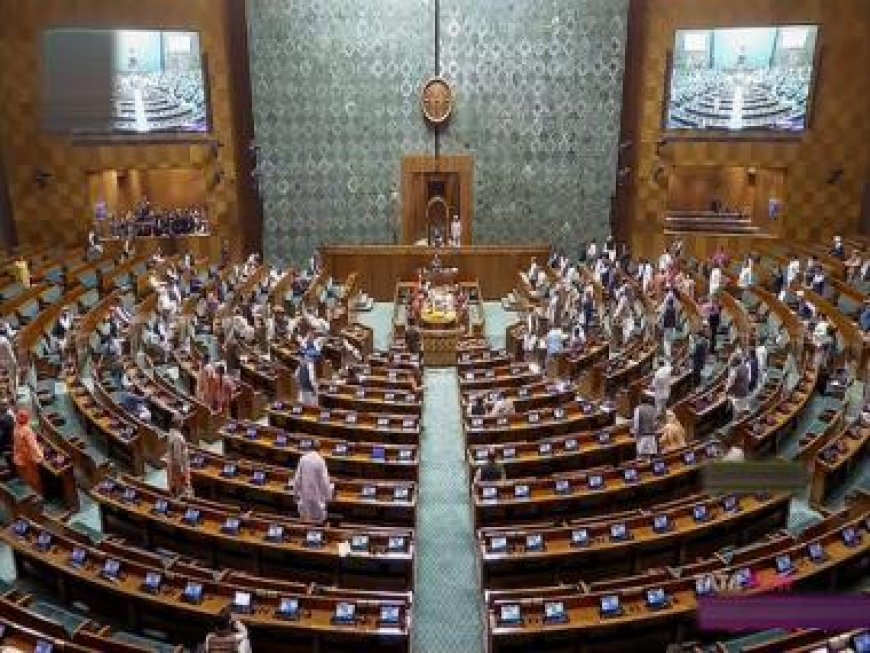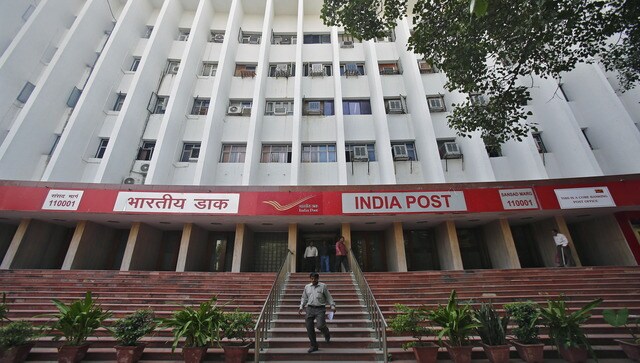What are the two new bills that allow govt to intercept your messages, posts?
What are the two new bills that allow govt to intercept your messages, posts?

The Centre introduced the Telecommunications Bill, 2023 on Monday (18 December), which seeks to replace the Indian Telegraph Act, 1885. On the same day, the Lok Sabha cleared the Post Office Bill, 2023 amid protests by Opposition MPs over the Parliament security breach last week.
Both the Bills are important for India’s communication landscape. Let’s take a look at these legislations in detail.
Telecommunications Bill, 2023
The Telecommunications Bill, 2023 amends and cements the laws concerning the “development, expansion and operation of telecommunication services and telecommunication networks; assignment of spectrum; and for matters connected therewith”.
The Bill introduced by Union Minister for Communications, Electronics & Information Technology Ashwini Vaishnaw in the lower house also intends to replace the Indian Wireless Telegraphy Act, 1933, and the Telegraph Wires (Unlawful Possession) Act, 1950.
According to objectives and reasons, the Bill is needed to “create a legal and regulatory framework that focuses on safe and secure telecommunication network that provides for digitally inclusive growth.”
The draft legislation empowers the government to take over, manage or suspend telecom services and intercept messages in the interest of national security.
It states: “On the occurrence of any public emergency, including disaster management, or in the interest of public safety, the Central Government or a State Government or any officer specially authorised in this behalf by the Central Government or a State Government, if satisfied that it is necessary or expedient so to do, by notification— (a) take temporary possession of any telecommunication service or telecommunication network from an authorised entity; or (b) provide for appropriate mechanism to ensure that messages of a user or group of users authorised for response and recovery during public emergency are routed on priority.”
Find the Bill copy of the Telecommunications Bill, 2023 introduced in Lok Sabha today.
Bill text: https://t.co/KnaAm1BFbb https://t.co/UcCZ9ccpmX
— PRS Legislative (@PRSLegislative) December 18, 2023
The Bill further said that “on the occurrence of any public emergency or in the interest of public safety”, the central or state government, “in the interest of the sovereignty and integrity of India, defence and security of the State, friendly relations with foreign States, public order, or for preventing incitement to the commission of any offence”, order that any messages “transmitted or received by any telecommunication service or telecommunication network, shall not be transmitted, or shall be intercepted or detained, or shall be disclosed in intelligible format to the officer mentioned in such order”.
The latest draft law exempts mentioning over-the-top (OTT) services in its definition of telecom services. The previous version of the Telecom Bill had expanded the definition to incorporate “Over-The-Top (OTT) communication services”.
The legislation has also proposed key changes in the allocation of spectrum for satellite broadband services, which would be assigned through an “administrative process”, bypassing auction. Key beneficiaries of this clause will be Bharti’s OneWeb, Reliance’s Jio Satellite Communications, Elon Musk’s Starlink, and Amazon’s Project Kuiper, noted BusinessLine.
The Bill allows the Centre to frame rules to provide for “measures to protect” cyber security of telecommunication networks and services. These measures include “collection, analysis and dissemination of traffic data that is generated, transmitted, received or stored in telecommunication networks”.
The legislation calls for prior consent of users for “certain specified messages or class of specified messages”, such as any text “advertising or promoting goods, services, interest in property, business opportunity, employment opportunity or investment opportunity”.
The new Bill allows the government to ask telecommunication services to transmit specific messages. “If it appears necessary or expedient so to do in the public interest, the Central Government may direct any authorised entity to transmit in its telecommunication services or telecommunication network, specific messages, in such manner as may be specified,” the legislation states.
Individuals with at least 30 years of professional experience can serve as the chairperson of the Telecom Regulatory Authority of India (TRAI) chairperson, while those with at least 25 years of professional experience can serve as the body’s members, says the Bill.
Post Office Bill, 2023
The Post Office Bill, 2023 seeks to supplant the colonial-era Indian Post Office Act of 1898, which regulates India Post, a departmental undertaking of the Central government. For the first time, private courier services have been brought under the ambit of the proposed law.
The legislation was passed by the Lok Sabha on Monday, while it was cleared by the Rajya Sabha on 4 December during the ongoing Winter Session.
The Opposition has flagged several concerns about the Bill, which aims to “consolidate and amend the law relating to Post Office in India”.

The 125-year-old Indian Post Office Act enacted in 1898 chiefly concerns itself with mail services by the Post Office. Today, the Post Office network has become a “vehicle for delivery of a variety of citizen-centric services” which “necessitated the repeal of the said Act and enactment of new law in its place”, says the Bill.
The contentious Section 9 of the legislation enables the Centre to allow any postal officer through a notification to “intercept, open or detain any item” in the interest of state security, friendly relations with foreign states, public order, emergency, public safety, or contravention of other laws.
Any officer of the Post Office can hand over items to customs authorities if they are suspected to contain any banned item, or if such items are liable to duty.
These provisions are similar to Sections 19, 25 and 26 of the 1898 Act which restricted the kind of articles that could be delivered through India Post.
As per Section 10 of the 2023 Bill, “No officer of the Post Office shall incur any liability with regard to a service provided by the Post Office, unless the officer has acted fraudulently or wilfully caused loss, delay or mis-delivery of service,” except such liability as may be prescribed.
It allows the director general of postal services to make rules regarding fees for services availed by individuals.
The latest Bill removes all penalties and offences committed by post office officials under the 1898 Act.
It states that if anyone “refuses or neglects to pay the charges for availing a service, such amount shall be recoverable “as if it were an arrear of land revenue due” from them.
Criticising the legislation, Congress MP Shashi Tharoor said the 2023 Bill retained the most “draconian” provisions of the 1898 Act.
“Over the past decade we have often seen this Government, in the guise of decolonising our minds and updating colonial era lore, bringing in legislation that is equally if not more arbitrary and unreasonable, and that more often than not encroaches upon the fundamental rights of countless Indians,” Indian Express quoted him as saying.
“Even as it seeks to revise a colonial Bill, this Bill retains its draconian and colonial provisions, that too while eliminating the burden of accountability which a governmental enterprise like India Post ought constitutionally to shoulder. Sadly, it offers no new ideas to bring our post offices into the 21st Century,” he said during the debate on the Bill.
What's Your Reaction?


























































